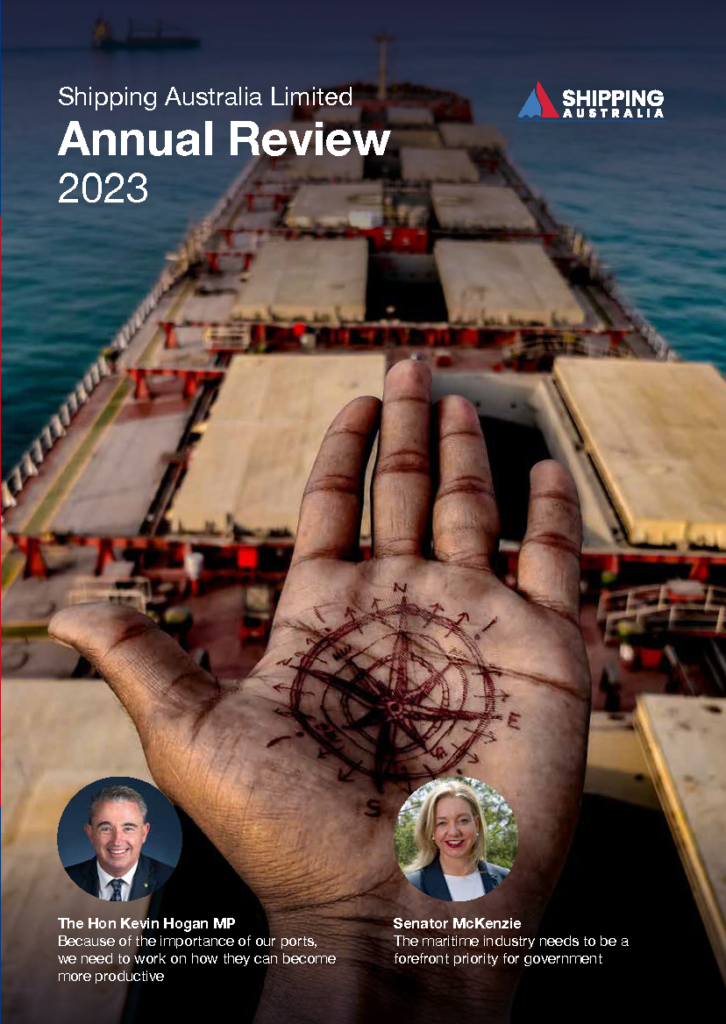
Given the widespread shoreside transmission of COVID-19 in communities around the world, shipping lines have been extremely careful to protect the health of their crews.
COVID-19 onboard would adversely affect the operational viability of a ship. There is also clearly a strong sense of self-preservation amongst crew members who are keen to protect their own health. Shipping companies share that interest as it is crucial to their economic survival that crews remain healthy.
General and specific isolation
Ship crews are a small and isolated community who are occasionally adjacent to landside areas of potential infection from the community for very short periods. Fully cellular container ships are usually in port for less than 18 hours. During that time ship crews are rarely in physical proximity to people from the community who may be carriers of COVID-19.
Ship crews are prohibited from taking shore leave in places of widespread COVID-19 outbreaks. Crew are not allowed to leave the vessel unless strictly necessary to carry out essential functions such as reading of draught marks and completing the ship/shore safety check, both of which are essential to ensure ship safety. When crew do disembark to carry out such critical tasks, they wear protect their health from community transmission by wearing protective personal equipment such as facemasks.
Protection of crew and visitors
Shipping operators are also protecting the health of their crew from community transmission of COVID-19 by prohibiting the boarding of their vessels by visitors, unless their presence aboard is essential. Shore side workers who directly provide services to a vessel have been asked to remotely interact with ships where possible, for instance by sending digital versions of documents to the ship via email.
Sometimes shore side personnel simply must board a ship, which potentially exposes crew to community transmission of COVID-19. Shipping operators protect the health of the crew by implementing a series of protective measures. Where possible, visitor access to the ship is very controlled. For instance, visitors may only be allowed to the very top of the gangway to exchange necessary documents or to collect fuel samples.
Before visitors go aboard, crew are mindful that guests may need to be reassured that their health is being protected even though any risk from ship crew is miniscule. So the crew disinfect areas of the ship that visitors may enter, such as staircases, lifts, lift wells, the bridge and accessways. High-touch surfaces such as ladderways, lift buttons, handrails, door handles and radios are also disinfected.
At the time of boarding, visitors are usually required to wear face masks, submit to temperature checks and use alcohol-based hand sanitizer. As visitors may have been exposed to community transmission, their contact with the crew is minimised. For instance, visitors are asked to take the lift by themselves and, insofar as possible, only the ship’s captain and the bridge team will interact with a pilot. Personal contact, such as shaking hands, is not practised and the bridge team will follow social distancing measures by staying more than a metre away from visitors.
After a port of call, shipping lines closely monitor the health of their crews while ships are in transit. Shipping operators take the temperatures of their crew on a daily, and even twice-daily, basis. Ship operators also have isolation protocols that are applied if a crew member falls ill. If a crew member feels unwell then it is reported to the appropriate local health and maritime authorities.
Let ships into port – it’s the right thing to do
Shipping Australia urges all state and port authorities to allow ships to berth on arrival and to discharge cargo, provided that crew stay onboard and only briefly step onto the wharf to carry out vital ship-related functions. That is, after all, wholly in-line with advice from the Federal Department of Health and also the Australian Border Force.
Stay away periods of 14-days as imposed by the Port Authority of New South Wales, Maritime Safety Queensland and some private ports are wholly unnecessary, and they undermine the sustainability of shipping services into Australia.
Such delays can be operationally intolerable for shipping companies. Unfortunately, because we have seen one port authority institute a blanket 14-day ban on all ships (which was quickly amended, thankfully), we know how badly trade is affected when shipping is excessively burdened.
And it’s this: Australia-destination cargo gets held up overseas, ports of calls are skipped, and freight is re-directed to other parts of the country.
That leads to knock-on and escalating problems in landside supply chain that, ultimately, causes shortfalls in the availability of consumer goods, foodstuffs and medicines. We can only imagine the consequences of doctors and nurses not being able to obtain vital medical supplies and Australian families being denied access to everyday imported foodstuffs and goods.
It is unnecessary and dangerous to enact draconian stay-away policies, which have such potentially awful consequences, to cope with a miniscule risk when shipping companies, their crews and the national border and health authorities have already properly considered and addressed this risk.
Port authorities around Australia hear this plea: let’s not make this situation harder on Australian families and medical personnel than it already is.
Let our ships arrive.
Let our ships unload our cargo.
And let our freight flow – it’s the right thing to do.


